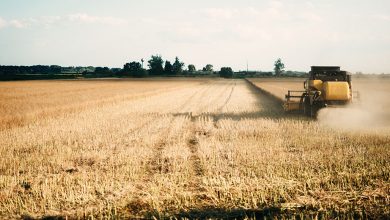
‘Many Unanswered Questions’ Regarding Lake Diefenbaker Irrigation Project
The Saskatchewan Association of Rural Municipalities (SARM) is urging the provincial government to provide an update on the Lake Diefenbaker Irrigation Project, which was announced in 2020 to assist a region of Saskatchewan affected by years of drought. According to SARM’s news release, the $4 billion project aims to provide water to over 500,000 acres of farm and grain land and bolster industrial and potash operations. The project is also estimated to increase provincial GDP by $40 to $80 billion.
As SARM awaits an update on the project, the organization is hopeful that Phase Two Westside will begin soon. This phase of the project is expected to irrigate up to 260,000 acres of land, providing much-needed support to Saskatchewan’s agricultural sector.
“The Lake Diefenbaker irrigation expansion could more than double the irrigated land in the province, not only opening new farmland to consistent water supplies, but also facilitating industrial and potash mining operations. The government has already allocated $45.5 million for preliminary engineering and environmental work on the first phase of the project and has said construction could start in 2023. At this time, most of the work beyond rehabilitating existing canals is in the conceptual phase, and there are many unanswered questions,” says Ray Orb, President of SARM.
The Lake Diefenbaker Irrigation Project has the potential to offer significant benefits to the province and its residents, including increased food security and job creation. By irrigating hundreds of thousands of acres of farmland, the project could also help reduce reliance on imported agricultural products.
“We recognize that this is a long-haul project that will positively impact rural municipalities in 50 years, and are committed to helping rural residents increase their crop diversity, and farm profitability, with irrigation, with Project 1 launching sooner rather than later.” says Orb.
SARM’s call for an update on the project underscores the importance of this initiative to rural communities and the broader provincial economy. As the government moves forward with the project, it will be essential to ensure that the needs and concerns of local stakeholders are considered and addressed.








































